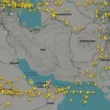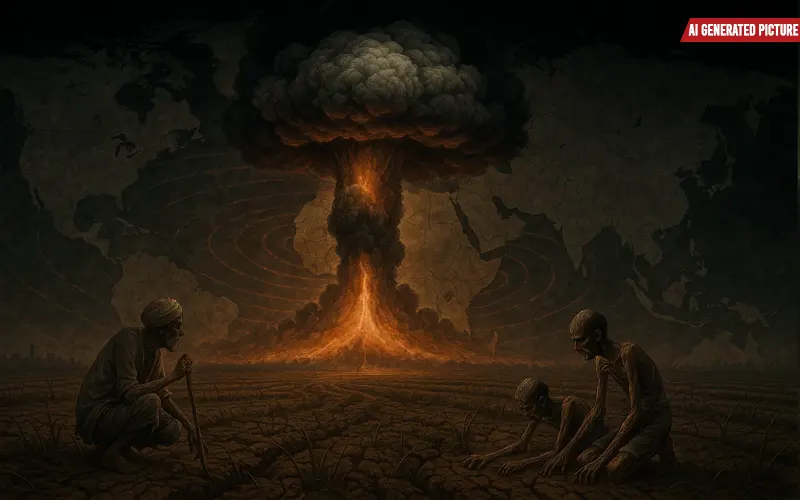A recent ceasefire agreement between India and Pakistan offers a moment of stability in the region, but the studies in recent times stress that a permanent truce is important for the region.
Lasting peace between the two nuclear-armed nations would not only ease tensions in South Asia but also help prevent a broader humanitarian disaster that could spiral into global conflict.
These two nuclear-armed nations have fought multiple wars since their independence in 1947, and continued hostilities – especially in the Kashmir region – pose a constant threat to regional and global peace.
With both countries possessing growing nuclear arsenals, even a limited nuclear conflict could cause devastating global consequences, particularly in agriculture, climate, and human life.
Historical Context
India and Pakistan have fought four wars (1947, 1965, 1971, and the Kargil War in 1999), primarily over the disputed region of Kashmir.
Since then, there have been continuous ceasefire violations and border encounters, keeping tensions high on both sides.
India and Pakistan both have accused each other of supporting terrorism and destabilizing the region, leading to a fragile peace that could collapse at any moment.
According to the United Nations, the Kashmir conflict remains one of the most dangerous territorial disputes in the world, due to the nuclear capabilities of both countries.
What If Nuclear War Breaks Out?
If India and Pakistan each used their nuclear arsenals – approximately 50 warheads per country – targeting urban centers, the results would be catastrophic.
A 2019 study published in the Bulletin of the Atomic Scientists estimates that such an exchange could cause 50 – 125 million immediate deaths, primarily from the blasts, burns, and radiation, and would rise with delayed deaths from radiation, disease, and famine (Robock et al., 2019).
Beyond the immediate death toll, massive firestorms from targeted cities would pump 5-6 million tons of black soot into the upper atmosphere, blocking sunlight and triggering what scientists call a “nuclear winter.”
Impact on Population
India, with a population of 1.46 billion in 2025, could lose between 2–5 percent of its citizens immediately.
Pakistan, with a population of 255 million, could suffer a more severe toll, with 15–20 percent of its people wiped out in a matter of days.
Secondary deaths would occur due to radiation sickness, medical infrastructure collapse, and food shortages, compounding the humanitarian crisis.
Global Effects on Climate, Food, and Farming
A limited nuclear war would reduce global average temperatures by 1.5°C to 2°C in the first year, according to a 2022 study in Nature Food (Xia et al., 2022).
This cooling effect would shorten growing seasons and reduce rainfall across the globe, especially in key farming regions.
India and Pakistan’s crop yields (especially wheat and rice) could drop by up to 90 percent in the first two years.
China, the U.S. Midwest, and Europe could see staple crop production (like maize and soybeans) fall by 10–20 percent, according to another study published on scientific journal PNAS in 2020.
Up to 2 billion people globally could face severe food insecurity or famine, according to the International Physicians for the Prevention of Nuclear War (IPPNW Nuclear Famine Report).
Farming Sector: A Global Collapse
Agriculture would be the most heavily impacted sector, with regional and global effects:
India: With over 40 percent of the workforce in agriculture, the collapse of crop yields could push hundreds of millions into poverty and hunger.
Pakistan: Agriculture contributes 23 percent to GDP and employs about 37 percent of the workforce. The destruction of irrigation networks and radiation contamination would make recovery nearly impossible.
Global grain output could fall by over 255 million tons in a single year – enough to feed 1.3 billion people, claimed the study in Nature Food.
Why Ceasefire Benefits the World
A permanent ceasefire between India and Pakistan would:
- Eliminate the threat of nuclear war in one of the world’s most volatile regions.
- Stabilize global food supply chains by removing the risk of agricultural collapse.
- Lower regional tensions, reducing military expenditures and redirecting funds toward development.
- Protect over 1.7 billion people from a humanitarian catastrophe, and prevent potential global famine.
India and Pakistan’s ongoing hostility is not a regional issue – it’s a global one.
The use of even a fraction of their nuclear weapons would trigger a chain reaction that could starve billions, destabilize economies, and reshape the global climate for years.
A ceasefire is not just a diplomatic gesture – it’s a necessity for global survival.












